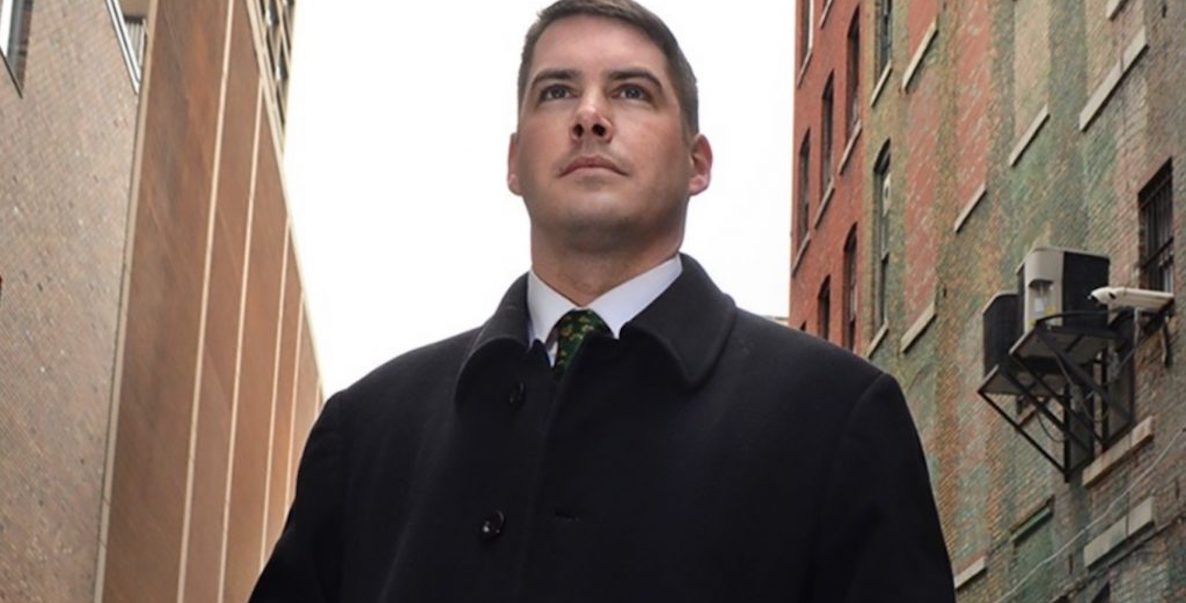Since the dawn of the Trump era, he’s been on our TV screens, speaking truth to inanity. Whether on MSNBC’s Morning Joe or fielding the penetrating questions of Philly homeboy Jake Tapper on CNN, Charlie Dent has arguably become the leading Republican voice against what he calls his party’s “three-headed monster of protectionism, isolationism and nativism” in the age of Trump.
At a time when so many Republican leaders—are you listening, Paul Ryan?—enable Trump and Trumpism, I’ve found myself more than once in the last year thanking God for Charlie Dent’s blunt cable TV talk.
Be Part of the Solution
Become a Citizen member.The 57-year-old Dent is no silver spoon Republican. A lifelong resident of the Lehigh Valley, his late father worked at Bethlehem Steel. Dent attended Penn State, got a Master’s from Lehigh University, where he went on to work in development after a stint selling industrial electronics. He parlayed a stint as an aide to then-Representative Don Ritter into eight years in the Pennsylvania House and six in the State Senate.
Since 2005, Dent has represented the 15th Congressional District, which stretches from the suburbs of Harrisburg to Allentown, and has carved out a niche as one of the last of a dwindling breed: The moderate Republican.
He co-chairs The Tuesday Group, a coalition of Republican centrists, formed to counterbalance the influence of the far right. He says he represents “the governing wing” of the Republican party, and, as such, has been an outspoken critic of Trump and Trumpism. He supported Ohio Governor John Kasich in the 2016 primary and voted for independent Evan McMullin in the general election; labeled Trump’s morals “indefensible”; led opposition to the president’s travel ban; and, while many of his Republican colleagues have upped their criticism of Special Counsel Robert Mueller with each guilty plea or indictment notched by the former FBI Director, Dent calls for letting Mueller’s investigation to continue unimpeded, defying partisan Republicans who seek to undermine Mueller and Democrats who prematurely float talk of impeachment. According to the bipartisan index created by the The Lugar Center and the McCourt School of Public Policy, he is the 47th most bipartisan member of the House.
Moderation isn’t typically something that stirs men’s souls, but unlike many moderates, Dent is no egghead or shrinking violet. He seems to revel in the fight, as when he said of a Breitbart-backed Bucks County rally against him: “It was a buffoon bus, and it was a freak show,” or when he offered some unsolicited advice to the president on MSNBC last week: “Going after members of your own party, that’s just stupid.”
When Trump sycophant Sebastian Gorka tweeted “You mean the ‘Republican’ called @RepCharlieDent who won’t even run again in PA because real Conservatives have his number as a RINO [Republican In Name Only]?” Dent fired back: “Coming from someone fired by this White House and someone who campaigned for Roy Moore…”
Dent is, in short, what we say we want in an elected leader: A non-ideological, thoughtful, let-the-chips-fall-where-they-may public servant, someone who is well-versed on the issues, someone with a common touch, at once plainspoken and high-minded. So the question becomes…why is he leaving Congress? Last fall, Dent announced that he wouldn’t seek reelection, joining other Republican Trump critics like Jeff Flake and Bob Corker in retirement. But, in Dent’s case, one wonders if this is retirement or retrenchment.
There are rumors that he’ll become a cable TV talking head, and I suspect we may see him involved in a 2020 primary challenge to Trump, perhaps in support of Kasich, who seems to be readying a run. After all, last fall, when he announced his retirement, he had this warning for Trump: “It’s not helpful if the President is encouraging primaries against sitting Republican senators like Jeff Flake. The more he does that, the more likely I think it is that he suffers the same fate.”
I caught up with Dent last week, not long after he appeared on This Week With George Stephanopoulos, where he said the Trump administration “has taken the fun out of dysfunction. I expect a certain amount of dysfunction in government. Sometimes you can laugh at it. But it’s not so funny anymore.”
“As the Democrats go hard left and the Republicans go Trumpian, that’s leaving a lot of space in between. There is a big center in this country and it’s not represented as it should be. I never thought we’d see a real third party or independent party in American politics, but now I’m starting to rethink that.”
Here’s an edited and condensed transcript of our conversation:
LP: So what’s it like to be the last reasonable man in politics?
Dent: [Laughing] That’s very flattering, but I’m not sure it’s true. What is true is that Washington, D.C., has become a difficult place to be pragmatic. It’s so damn polarized that we’ve reached a point of paralysis. In my District, I’ve always had to get votes from Democrats and Independents, which means you can’t ignore them and you can be less fearful of retribution from the base. What that means is, you find out that most Democrats—just like most Republicans—aren’t as ideological as you think. I’ve told my colleagues, ‘You shouldn’t be afraid to come out of your foxhole once in a while. You won’t get your head shot off.’
LP: That’s one of the ironies of this moment, with this president. We’re more polarized than ever, but it’s not driven by the ideologies we’re used to.
Dent: That’s right. If Donald Trump proves one thing, it’s that the Republican base is not as ideologically doctrinaire as we were led to believe. Republican primary voters, it turns out, are not cut out of the Ted Cruz mold. My take on this is that, prior to Donald Trump as president, the litmus test was ideological conformity. Some of us were not doctrinaire enough and the self-appointed chiefs of the purity police called us RINOs. [Republican In Name Only]. Well, now they’re flummoxed, because the litmus test is loyalty to a man, and to being angry and aggrieved.
LP: So how did we lose the center? When I was growing up, there wasn’t much daylight between, say, Democratic Senator Henry ‘Scoop’ Jackson and Republican Warren Rudman. The term ‘Jack Kemp Republican’ was all about pro-growth policies, building consensus and getting things done. What happened?
Dent: One thing happened inside politics. If you were a legislator representing a marginal or swing district, you used to have the sense that your colleagues understood you might not be there on every single risky vote. Whether it was TARP in ’08, or agreement on the fiscal cliff or raising the debt ceiling, a lot of times members from safe seats would understand if you couldn’t be there with them. That’s changed a lot, and it’s hard to run an operation when your colleagues are sniping at you. Suddenly, we’re the sell-outs. It’s a system that rewards those that tack to the base and play to the voices on the fringe.
LP: In all your TV appearances, you’ve been careful to point out that it’s not just your party pandering to the extremes. Is there something deeper going on, beyond a Republican civil war?
Dent: Something is happening. Globally, politics is realigning under our feet. In France, the two major parties collapse and Macron comes up through the middle. In Germany, Merkel is having a helluva time putting together a governing coalition. In the UK, you’ve got Brexit.
Here, Bernie Sanders has taken over the Democratic party, and he isn’t even a Democrat. And Donald Trump is only nominally a Republican. Democrats have become the party of Bernie, Silicon Valley, coastal elites, identity politics, government workers and environmentalists. I tell my Democratic colleagues all the time, you don’t like the oil, coal, and pharmaceutical industries. Well, where I come from, that’s where people work. The challenge for the Republican party is that, if we take the Trump path, we can’t win elections appealing to older white guys. There aren’t enough guys who look like me to sustain the party.
LP: There have been a couple times in my lifetime when I briefly thought the possibility existed for a centrist third party—when former Rep. John Anderson ran for president in 1980 and Ross Perot in 1992. Are you saying there’s another such opening today?
Dent: As the Democrats go hard left and the Republicans go Trumpian, that’s leaving a lot of space in between. There is a big center in this country and it’s not represented as it should be. I never thought we’d see a real third party or independent party in American politics, but now I’m starting to rethink that.
LP: Neither party seems to be seizing on that wide open center as an opportunity. The Democrats got spanked at the polls in 2014 and 2016, yet leadership in Congress still rests with a San Francisco liberal in Nancy Pelosi and a New York liberal in Chuck Schumer.
Dent: That’s just remarkable to me. At least when the Republicans lose, we change our leadership. Dennis Hastert got pushed out and so did John Boehner. The Democrats have lost two major elections and kept the same leadership.
LP: Tell me about President Trump’s unsuccessful effort to get you to support the repeal of ObamaCare.
Dent: There were two meetings he held in the White House cabinet room with Tuesday Group members. The first one, there were 13 of us. He went around the room and listened respectfully as about six of us expressed our concerns. I told him that losing the Medicaid expansion was too hard of a landing for states like mine, and that the tax credits were not sufficient for those who would have to transition to buy health care. I gave him the proposal from Governors Kasich, Sandoval and Snyder on Medicaid reform, which was a really smart plan.
Two days later, we were called back. There were 17 of us and I was the only one opposed. He went around the room, asking where everyone stood. I was second, and I said, ‘I’m opposed to the bill in its current form.’ ‘Why?’ he asked. And I said, ‘For the same reasons I told you two days ago.’ That’s when he lit into me, told me I was going to destroy the Republican party by taking down health care reform. His administration would be over and it would be my fault. After others spoke, he looked back at me and asked if I was still a hard no. I said I was, started to explain myself, and he cut me off and said he didn’t want to talk about it anymore.
A year ago, we formed the Problem Solvers Caucus in Congress. It’s a bipartisan group of about 40 members, evenly divided between Republicans and Democrats. We’re committed to finding real legislative solutions and we’ve agreed to vote together for any policy proposal that has the support of 75 percent of our caucus, as well as 51 percent of both the Democrats and Republicans in the caucus.
It was bizarre. I was trying to talk substance, and he just wanted a win, any win. That was the problem with the bill it wasn’t thought-through as a matter of policy.
LP: So you opposed health care reform as a matter of policy and now comes tax reform, which you ultimately supported. Did allegiance to centrist policies also drive that vote for you?
Dent: Yes. I believe that, on balance, it will help economic growth. Will it pay for itself, like the administration said? No. But it will bring the business tax code into the 21st Century. A lot of it is good, like the doubling of the standard deduction and the expansion of the child tax credit. The Democrats are just overreacting. It’s not going to be the end of the world. Instead of collecting $43 trillion, the federal government will collect $42 trillion.
LP: Let’s get to your decision not to seek reelection. A lot of us who believe that change will only come through brave Republicans who stand up and speak out are disheartened that guys like you, Jeff Flake and Bob Corker are taking yourself out of the game. What do you say to us?
Dent: I’ve run for office 13 times, and that ought to be enough for any one lifetime. I’m still going to have a voice on issues that matter to me. But I’ve been thinking of life after Congress ever since the government shutdown of 2013.
LP: What was it about the government shutdown of 2013?
Dent: That’s when it became clear just how much facts no longer mattered. Remember, we were shutting down the government over Obamacare because one senator—Ted Cruz—was on TV all the time, scoring political points. I spoke out, because the rest of us were going on a death march with him. That’s not governing. But both parties are afraid of their bases, and leadership is afraid of its members.
LP: You’ve said that Donald Trump, and the Trumpification of politics, played a role in your decision. But how much of it is that you’re just exhausted?
Dent: It does get tiring. I thought the 2016 election was an issue-free campaign. We only talked about what Donald Trump talked about it—the wall, tariffs on the Chinese. Then you get to that dark inaugural speech and the calamity of the travel ban, and, you know, it wasn’t just the campaign that was going to be issue-free.
LP: You mentioned the travel ban. On day one, you were one of the voices speaking out against it. How did that come to be?
Dent: My district has one of the largest Syrian communities in the country. It was a Saturday morning and I got a call from my son, who is an engineering student at Penn State. He told me of a family that was being detained at the Philadelphia Airport and kept from entering the country. These were people who had done things the right way—they’d gone through a 13 year, legal immigration process and their Visas were revoked while they were in mid-air. In mid-air! I finally got hold of somebody from the administration and found out they’d never vetted this executive order through the Departments of Defense, State, Justice or Homeland Security. They gave the president an order to sign and sent out a press release. How do you not do an intra-agency review that looks at how to implement policy change? So I started speaking out on it. I’m sure it wasn’t the best way to get started with the Trump administration.
LP: Leave us with some hope here. Is there something—anything—in your work now that speaks to the possibility that we’ve hit rock bottom and our politics might get functional again?
Dent: [Pauses] A year ago, we formed the Problem Solvers Caucus in Congress. It’s a bipartisan group of about 40 members, evenly divided between Republicans and Democrats. If we take in a Democrat, we have to take in a Republican—it’s kind of a Noah’s Ark model of membership. We’re committed to finding real legislative solutions—like last summer’s proposal to shore up the health care exchanges that leadership never took up. And we’ve agreed to vote together for any policy proposal that has the support of 75 percent of our caucus, as well as 51 percent of both the Democrats and Republicans in the caucus.
Correction: An earlier version of this story said Charlie Dent was from Bucks County. His district primarily covers the Lehigh Valley.
Jim Varhegyi







